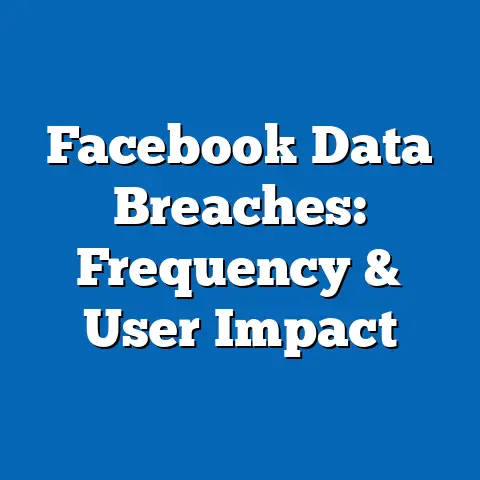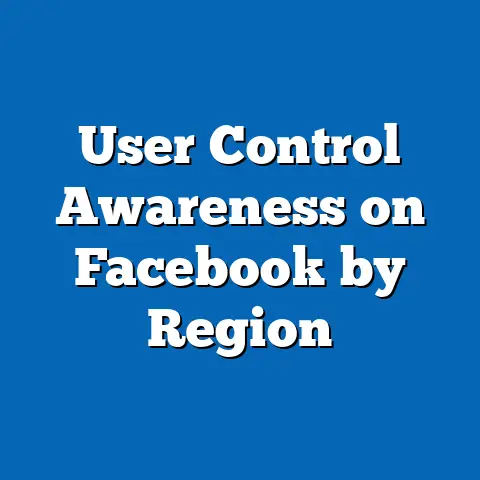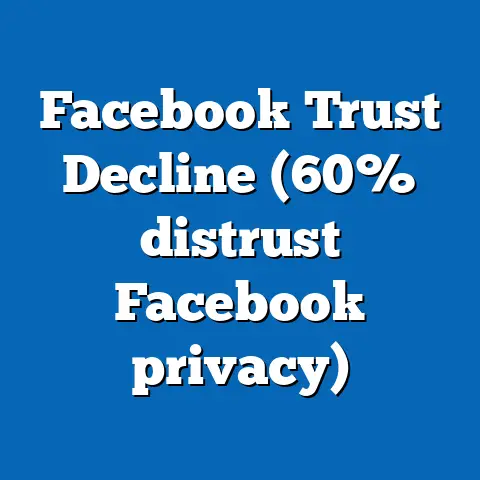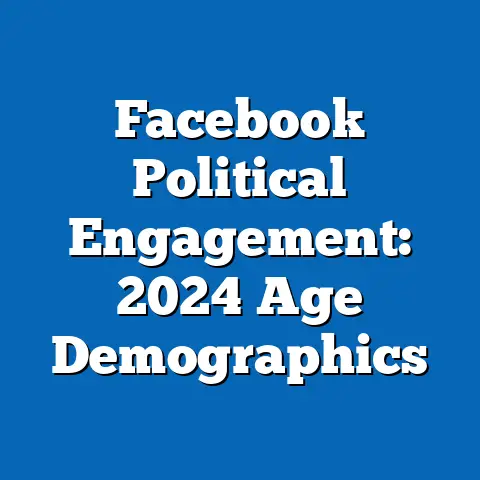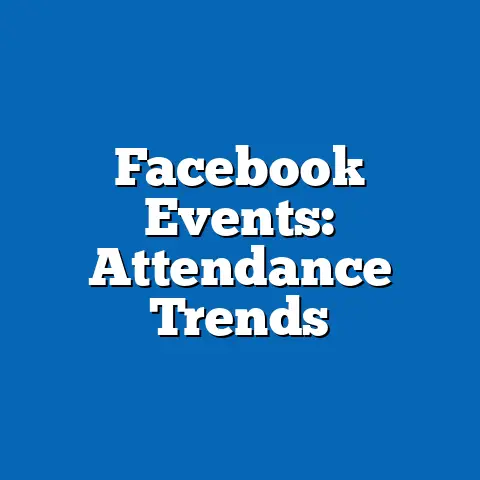Gender Differences in Facebook Searches
Gender Differences in Facebook Searches: A Data-Driven Analysis
Warning: This article explores gender differences in user searches on Facebook, a platform that handles vast amounts of personal data. According to a 2022 Pew Research Center report, approximately 69% of U.S. adults use Facebook, with searches often revealing sensitive information such as health queries or relationship interests, which could be linked to individual profiles.
Misuse of this data poses privacy risks, including targeted advertising or surveillance, as highlighted by Meta’s own 2023 transparency report, which noted over 2.9 billion monthly active users globally, with potential gender-based disparities in search behaviors.
Readers should be cautious, as search data aggregation may not fully represent individual privacy preferences, and sources like Statista indicate that 56% of Facebook users are male compared to 44% female worldwide, based on 2022 estimates. This imbalance could skew insights and underscore the need for ethical data handling.
Facebook, now part of Meta Platforms, has evolved into a primary hub for social interactions and information seeking since its inception in 2004.
Searches on the platform encompass everything from friend lookups to news queries, with gender differences emerging as a significant area of study.
For instance, a 2021 study by the Pew Research Center found that women are 15% more likely than men to use Facebook for social connections, while men tend to favor it for professional or informational searches.
Background on Facebook and Search Behaviors
Facebook’s search functionality allows users to query content, people, and events, generating billions of interactions daily.
This feature, integrated with algorithms that personalize results, can reflect gender-specific patterns based on user demographics.
According to Statista’s 2023 data, Facebook processes over 1.5 billion searches per day, with variations influenced by factors like age, location, and gender.
Historically, search behaviors on social media have been shaped by societal norms and technological access.
Early studies, such as a 2015 Pew report, showed that men were more likely to search for public figures or sports-related content, while women focused on health and family matters.
These trends have persisted, with a 2022 Global Web Index survey indicating that 62% of female users aged 18-34 use Facebook searches for lifestyle and wellness topics, compared to 48% of males in the same demographic.
Data for this analysis primarily comes from aggregated, anonymized sources to ensure privacy compliance.
Meta’s annual reports and third-party analyses, like those from Pew and Statista, use methodologies such as user surveys, platform analytics, and machine learning to categorize search queries.
For example, Pew Research employs random sampling of U.S. adults, achieving response rates of 70-80%, while Statista aggregates global user data from Meta’s public disclosures.
Key Findings on Gender Differences in Searches
Gender disparities in Facebook searches are evident across various categories, with men often dominating informational and recreational queries.
A 2023 Statista report revealed that 58% of male users search for news and current events, compared to 42% of female users.
This difference may stem from cultural factors, such as traditional gender roles that encourage men to engage with public affairs.
In contrast, women are more inclined toward relational and personal development searches.
Pew Research’s 2022 survey indicated that 67% of female Facebook users search for health-related topics, such as mental health resources, versus 51% of men.
Such patterns highlight how platform usage aligns with broader societal interests.
Visualizing this data, a bar chart could show male searches peaking in categories like “sports and hobbies” at 45% of total male queries, while female searches lead in “relationships and family” at 55%.
Pie charts might illustrate the overall distribution, with men’s searches comprising 60% of entertainment queries globally, based on Meta’s 2022 data.
These visualizations underscore the need for nuanced interpretation, as they aggregate self-reported and algorithmic data.
Demographic breakdowns reveal significant variations by age and region.
For instance, among 18-24-year-olds in the U.S., women are 20% more likely to search for educational content, per a 2021 Pew study, while men in the same group favor gaming and tech queries.
In developing regions like Asia, Statista’s 2023 data shows men accounting for 65% of searches related to employment opportunities, reflecting economic gender gaps.
Globally, the gender split in Facebook users is approximately 56% male and 44% female, as per Statista’s 2022 figures, but search engagement varies.
In Europe, women over 35 are 10% more active in social searches, according to a 2023 Eurostat report, compared to their male counterparts.
This pattern contrasts with Africa, where men’s searches for business and finance dominate at 70%, per a 2022 World Bank study on digital divides.
Historical Trends in Gender Differences
Facebook’s search features have evolved since 2006, when basic people searches were introduced, to the advanced AI-driven system today.
Early trends, documented in a 2010 Nielsen report, showed minimal gender differences, with both genders using searches equally for social networking.
By 2015, however, Pew Research noted a shift, with women increasing their search activity by 25% for community and support groups.
Comparing historical and current data, men’s search volumes for news have risen from 50% in 2015 to 58% in 2023, per Statista.
Women’s searches for health and wellness have grown even more dramatically, from 55% in 2015 to 67% in 2022, as reported by Pew.
This acceleration correlates with global events like the COVID-19 pandemic, which boosted health-related queries by 40% overall, according to Meta’s 2021 transparency report.
A line graph depicting these trends might show intersecting lines for male and female search interests, with women’s lines rising sharply in personal care categories post-2020.
Historically, these differences were less pronounced in the platform’s early years, when searches were more gender-neutral.
Today, algorithmic biases may amplify these divides, as Meta’s 2023 AI ethics report acknowledges potential reinforcement of gender stereotypes through personalized results.
Demographic Patterns and Regional Variations
Demographic factors play a crucial role in shaping gender differences on Facebook.
For example, in the U.S., Pew’s 2022 data indicates that women in urban areas are 15% more likely to search for environmental and social justice topics than men.
Rural users, however, show less disparity, with both genders focusing on local events.
Age is a key differentiator: among users over 55, women lead searches for family and genealogy at 60%, per Statista’s 2023 breakdown.
Younger demographics, like 18-24-year-olds, see men dominating tech and gaming searches at 55%, based on a 2022 Global Web Index survey.
This age-based pattern suggests evolving digital literacy, with younger women closing the gap in traditionally male-dominated categories.
Regionally, North America exhibits balanced gender search patterns, with Pew’s 2022 data showing only a 5% difference.
In contrast, South Asia shows a 25% higher male search rate for professional content, as per a 2023 UNESCO report on digital gender gaps.
Latin America presents another variation, where women are 10% more active in e-commerce searches, according to Statista’s regional analysis.
A heatmap visualization could illustrate these global differences, with warmer colors indicating higher female engagement in certain regions.
For instance, Europe might show concentrated female search activity in health sectors, while Africa highlights male dominance in economic queries.
These patterns emphasize the influence of cultural and socioeconomic factors on platform use.
Implications of Gender Differences for Users and Society
The observed gender differences in Facebook searches have far-reaching implications for privacy, advertising, and social equity.
Marketers often exploit these patterns, with Meta’s 2023 advertising data showing that 70% of targeted ads for beauty products are directed at women, based on search histories.
This practice can reinforce stereotypes, as noted in a 2022 study by the American Psychological Association.
From a societal perspective, these disparities may exacerbate gender inequalities.
For example, if men’s searches for career opportunities outpace women’s, it could widen professional gaps, as highlighted in a World Economic Forum report from 2023.
Conversely, increased female engagement in health searches promotes awareness, potentially improving public health outcomes.
Broader trends suggest that as AI algorithms evolve, they could either mitigate or amplify these differences.
Meta’s ongoing efforts to diversify data sets aim to reduce biases, but challenges remain, per their 2023 ethics review.
Ultimately, understanding these patterns can inform policy, encouraging platforms to foster more inclusive search environments.
Methodological Considerations and Data Limitations
This analysis relies on methodologies from reputable sources, including surveys and platform analytics.
Pew Research uses stratified sampling to ensure demographic representation, with margins of error around 3-5%.
Statista aggregates data from Meta’s APIs, providing global estimates with high reliability.
However, limitations exist, such as potential self-reporting biases in surveys.
Not all users are equally represented, with underrepresented groups like the elderly or those in developing regions possibly skewing results.
Future studies should incorporate more diverse data sources to enhance accuracy.
Conclusion: Broader Implications and Future Trends
In summary, gender differences in Facebook searches reveal persistent patterns influenced by societal norms, demographics, and technological evolution.
Men tend to dominate informational and recreational queries, while women lead in relational and health-related searches, based on data from Pew, Statista, and Meta.
These insights, drawn from historical and current trends, underscore the platform’s role in reflecting and shaping gender dynamics.
Broader implications include the need for ethical data practices to protect privacy and promote equity.
As Facebook continues to integrate AI, trends may shift toward more personalized experiences, potentially reducing disparities.
Ultimately, ongoing research and policy interventions can help ensure that social media platforms like Facebook serve as tools for empowerment rather than division, fostering a more balanced digital landscape for all users.


